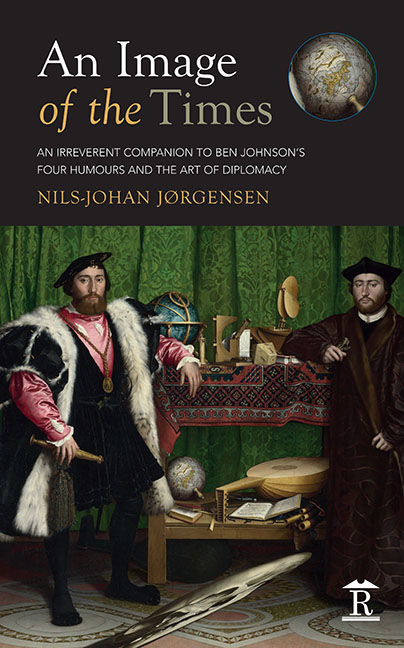Book contents
- Frontmatter
- Dedication
- OTHER WORKS IN ENGLISH BY THE SAME AUTHOR
- Contents
- Acknowledgements
- Induction
- Chapter 1 Ben Jonson and his Sources
- Chapter 2 Humorous Characterization in the Comedies of Ben Jonson
- Chapter 3 The Influence of Jonson on Seventeenth And Eighteenth-century Comedy
- Chapter 4 The Intrusion of Humorous Characterization into the English Novel
- Chapter 5 The Meaning of the Comic
- Chapter 6 Nomadic Humours
- Chapter 7 Unconscious Revelation
- Postscript
- Index
Chapter 7 - Unconscious Revelation
Published online by Cambridge University Press: 06 May 2022
- Frontmatter
- Dedication
- OTHER WORKS IN ENGLISH BY THE SAME AUTHOR
- Contents
- Acknowledgements
- Induction
- Chapter 1 Ben Jonson and his Sources
- Chapter 2 Humorous Characterization in the Comedies of Ben Jonson
- Chapter 3 The Influence of Jonson on Seventeenth And Eighteenth-century Comedy
- Chapter 4 The Intrusion of Humorous Characterization into the English Novel
- Chapter 5 The Meaning of the Comic
- Chapter 6 Nomadic Humours
- Chapter 7 Unconscious Revelation
- Postscript
- Index
Summary
Nature that framed us of four elements.
IN THE EMERGING psychology of the Renaissance the fourelements began to appear as humours, reflecting the qualitiesgiven to individual elements by the ancient philosophers.The word and concept psychology did not exist in theElizabethan age and what was understood as the science of the human soul and mind is perhaps best summed up in Robert Burton's massive work, using one of the leading humours, melancholy, as his title.
In any period the way of thinking of the human mind is, consciously or unconsciously, influenced by the collective experience of our cultural group. The relation of the artist to the intellectual climate of his time may be obscured by the freedom and independence underlying all true achievement in art, but even the greatest among them works within a framework of conventions. The process of creating is a mirroring of social structures and attitudes:
Even the creative act itself, involves, when anybody decides to write a novel, a sonnet, a five-act play, a great deal of social imitation of forms which already exist as social objects. The world is one thing and the story about it is another, that is true, but it is also true that the stories that already exist, and our attitudes to them, are part of the world.
The playwright applied the conventions and theories of his day in creating character. Jonson would let his characters fit in with and illustrate the current theories, always with a side-glance at decorum. The ideal of a perfect balance of the elements both in microcosm and macrocosm was maintained, but each element invited new definitions of their characteristics and function as they were interpreted as psychological forces. The element Fire took prime place in a new role as Blood and the Sanguine humour. The humours were not in themselves funny, but they fitted into the study of the nature and the mind of Man, as we would study genes, hormones, neurones and DNA.
The two concepts of universal order, the Great Chain of Being and Man as Microcosm, together with the theory that the human character was composed of four humours, had a strong influence on the Elizabethan habit of thought.
- Type
- Chapter
- Information
- An Image of the TimesAn Irreverent Companion to Ben Jonson's Four Humours and the Art of Diplomacy, pp. 184 - 194Publisher: Amsterdam University PressPrint publication year: 2015



